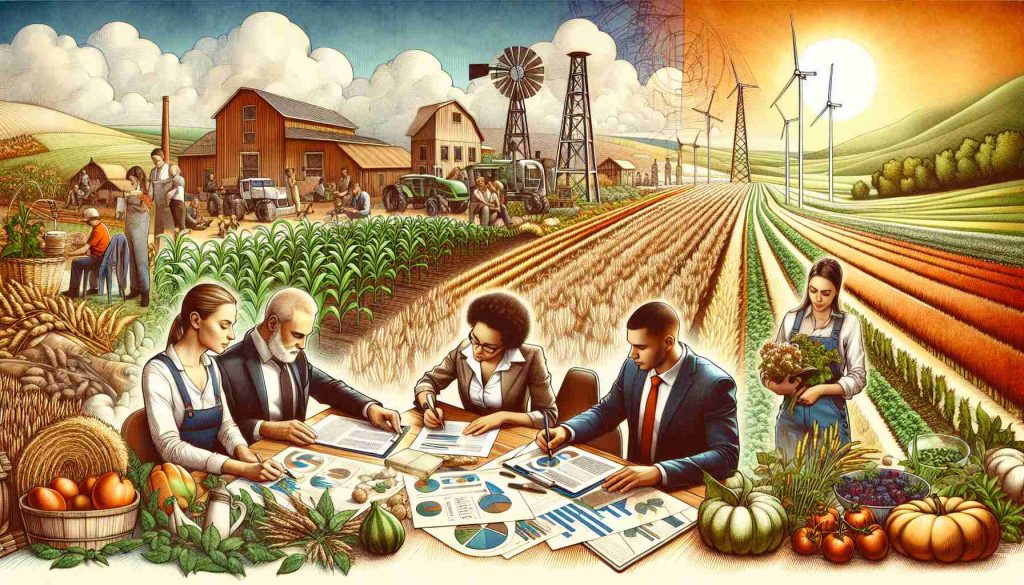Revitalizing Agriculture: A New Perspective on Legislative Support
3 min read
Farmers today face a plethora of obstacles in their daily operations. Implementing effective and innovative agricultural policies could be the key to overcoming these hurdles and thriving in the ever-evolving industry.
Ensuring the success of agricultural professionals requires proactive steps from policymakers. By introducing forward-thinking legislation that addresses the current needs of farmers, Congress can significantly impact the sustainability and growth of the agricultural sector.
Supporting farmers through tailored legislation that aligns with modern agricultural practices is paramount to fostering a resilient farming community.
Adapting to the rapidly changing landscapes of technology and consumer demands presents a constant challenge for those working in agriculture. Therefore, it becomes imperative for lawmakers to stay abreast of these developments and create laws that reflect the dynamic nature of the industry.
Empowering farmers with the right legislative framework not only benefits them but also contributes to the overall welfare of society by ensuring a stable food supply and economic growth.
In conclusion, by recognizing the essential role of agriculture and enacting pertinent legislation that addresses the unique challenges faced by farmers, Congress can pave the way for a flourishing and sustainable agricultural future.
Enhancing Agricultural Resilience Through Legislative Support
The agriculture industry plays a critical role in sustaining communities worldwide, providing essential food supplies and contributing significantly to economic growth. While existing legislative frameworks aim to support farmers’ needs, there are additional considerations that can further revitalize agriculture and ensure its long-term sustainability.
What are the key questions surrounding legislative support for revitalizing agriculture?
1. How can lawmakers encourage the adoption of sustainable farming practices to mitigate environmental impact?
2. To what extent should legislative measures address the challenges posed by climate change on agricultural productivity?
3. What role can technology play in shaping agricultural policies and enhancing efficiency in farm operations?
Key Challenges and Controversies:
1. Balancing agricultural growth with environmental conservation remains a pressing challenge, as intensive farming practices can lead to soil degradation and water pollution.
2. The debate around genetically modified organisms (GMOs) and their impact on agriculture continues to spark controversy, with differing opinions on their safety and long-term effects.
3. Ensuring fair market prices and equitable distribution of resources among farmers poses a challenge, particularly in the face of agribusiness consolidation.
Advantages:
1. Tailored legislative support can incentivize sustainable practices, leading to the preservation of natural resources and biodiversity.
2. Proactive legislation addressing climate change can help farmers adapt to shifting weather patterns and mitigate agricultural risks.
3. Support for technological innovation can boost productivity and efficiency, enhancing farmers’ competitiveness in global markets.
Disadvantages:
1. Overregulation may stifle innovation and impede farmers’ ability to respond swiftly to market demands and emerging challenges.
2. Implementation complexities and compliance costs associated with new legislation can disproportionately burden small-scale farmers.
3. Political influences and lobbying efforts may sway legislative decisions, potentially undermining the overarching goal of revitalizing agriculture sustainably.
In striving to revitalize agriculture through legislative support, policymakers must strike a balance between promoting innovation and safeguarding the interests of farming communities. By addressing emerging challenges and fostering a conducive regulatory environment, lawmakers can chart a path towards a resilient and prosperous agricultural future.
For more insights on agricultural policies and sustainability, visit DownToEarth.org.



